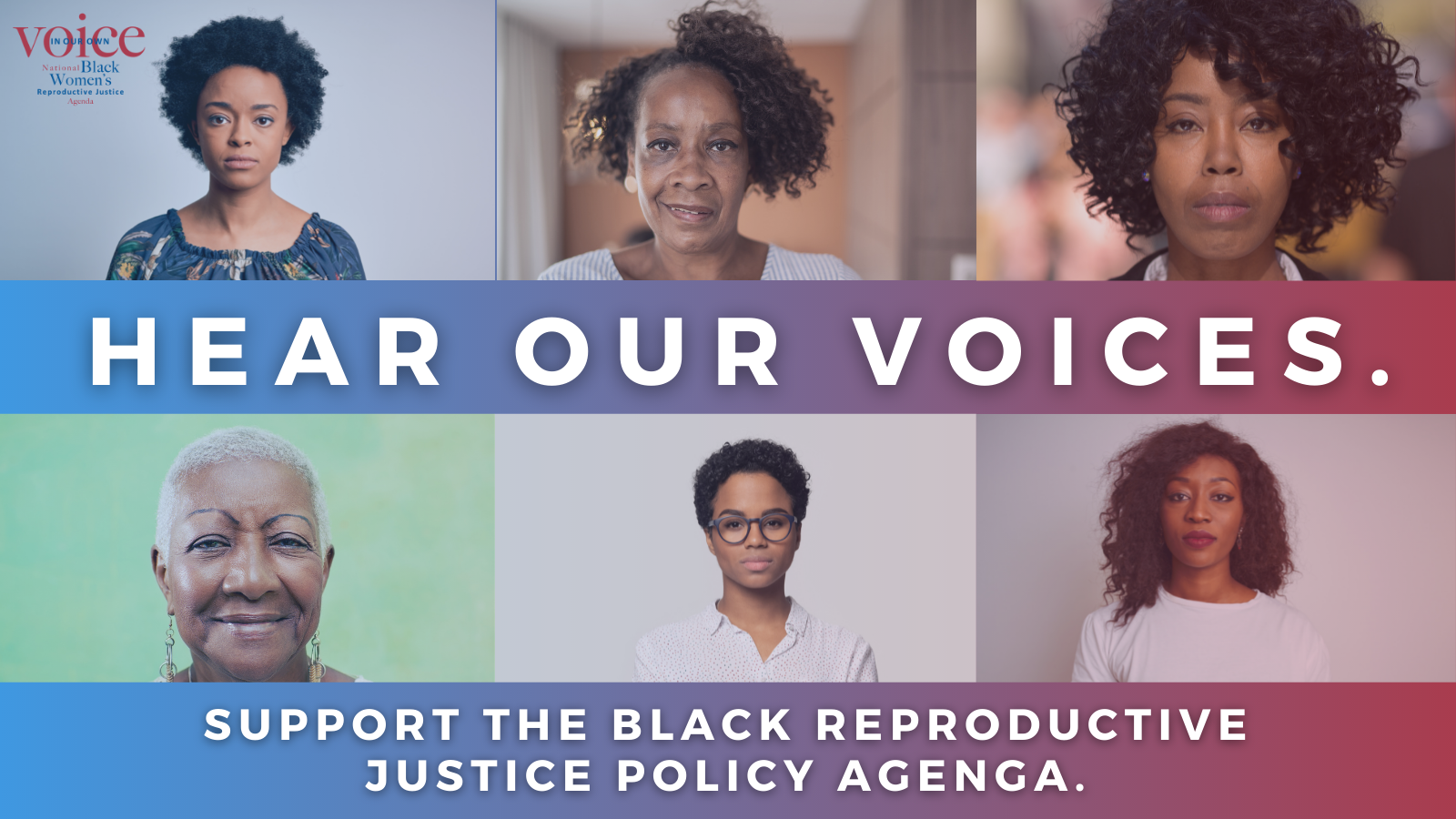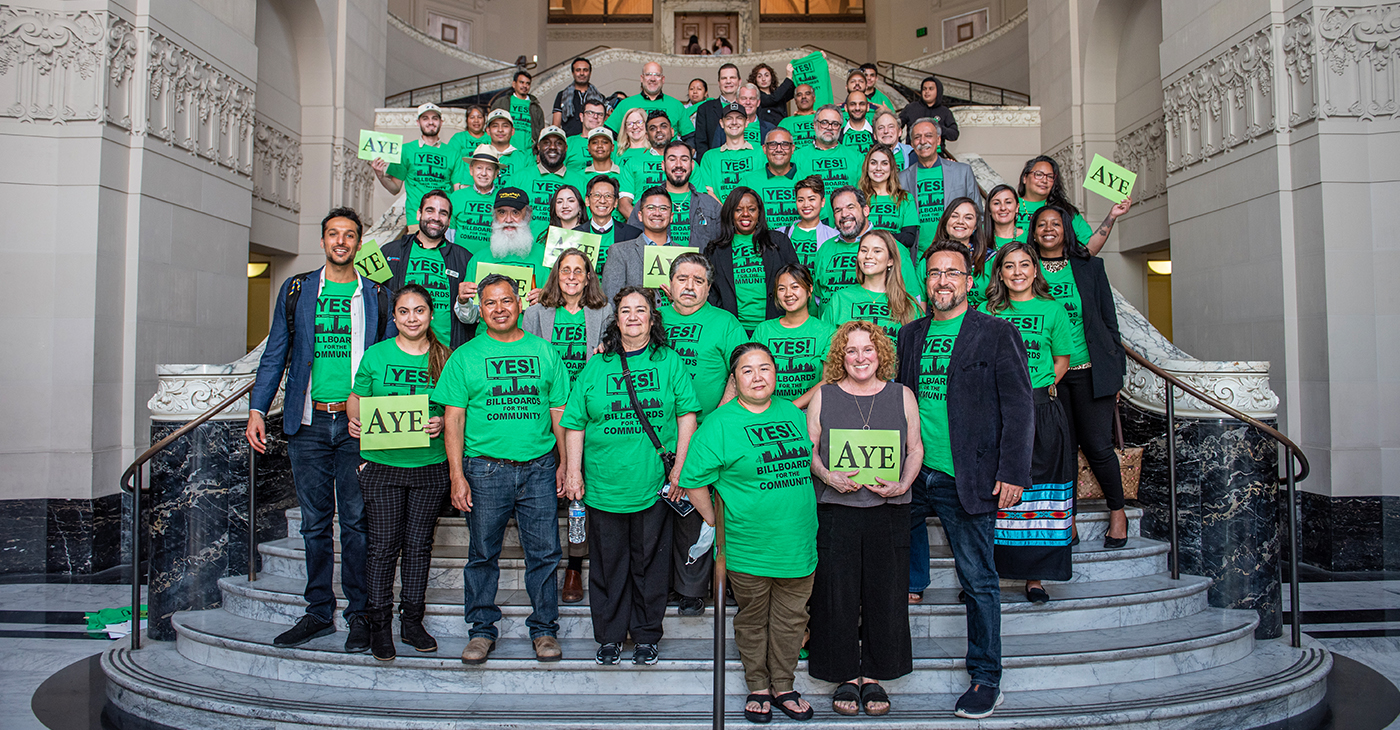Activism
“Black Reproductive Justice Policy Agenda” Will Turn Racism Upside Down
The Black RJ movement has a policy agenda that will hold law enforcement, politicians, corporations, voters and all people living in the U.S. to account. It is an expertly informed compendium of 25 issue areas, each with effective policy recommendations. We believe that the Agenda addresses the social, economic, political and health needs of Black women, femmes, girls and gender-expansive people — so we can live our lives fully and decide for ourselves if, when and how to have and raise our families.

As the U.S. Supreme Court reviews abortion cases that could overturn Roe v. Wade –
the 1973 decision that legalized abortion – there is a lot of attention being paid to abortion rights but not enough emphasis on the full range of reproductive health and rights issues.
Every pregnant Black person faces systemic racism that makes us “three times more likely to die from a pregnancy-related cause than white women.” When our children are born, we face the everyday reality of battling racism and the toll it takes on Black lives.
This past year, the deadly impact of racial discrimination couldn’t have been more evident as the pandemic devastated our communities, with Black and Latinx people accounting for nearly 43 percent of COVID-19 deaths. As if that’s not bad enough, Black and Latinx women have paid the economic price for the pandemic, bearing the brunt of the “shecession.”
That’s why more than 30 Black women’s organizations and Reproductive Justice activists created the “Black Reproductive Justice Policy Agenda” — innovative, proactive solutions to address the disparities and discrimination faced by Black women, femmes, girls and gender-expansive individuals. The “Black Reproductive Policy Agenda” is a comprehensive policy approach to the systemic racism that threatens our lives.
Now, a lot of people hear “Reproductive Justice” and think birth control and abortion. But nothing could be further from the truth. In fact, Reproductive Justice (RJ) is a collective framework grounded in human rights, social justice and Black Feminist theory that centers the intersectional impact of race, class and gender in one’s ability to live free from oppression — so we can create and nurture the family of our own choosing and achieve optimum mental, physical, community and economic health.
Reproductive Justice was birthed by 12 Black women in 1994, as the U.S. contemplated universal health care without acknowledging or rectifying the health care system in place, which was — and continues to be — riddled with deadly racism. Since then, RJ has grown into a full-fledged movement that fights not only for the right to health care — including full access to birth control and abortion — but also equity in housing, education and employment. RJ doesn’t leave anything — or anyone — behind. It is the comprehensive movement we need to disrupt and dismantle the deeply ingrained, systemic racism that plagues this country.
Black women, femmes, girls and gender-expansive individuals have been marginalized for far too long. We have been fighting for our survival while others stood by and watched — or worse, while they actively participated in our oppression for their own gain. No more!
We are tired of seeing our children, brothers, sisters, mothers, fathers and loved ones senselessly killed by the very people who are sworn to protect us. We are fed up with not being safe in our homes, neighborhoods and churches. We demand more than one moment of reckoning.
The Black RJ movement has a policy agenda that will hold law enforcement, politicians, corporations, voters and all people living in the U.S. to account. It is an expertly informed compendium of 25 issue areas, each with effective policy recommendations. We believe that the Agenda addresses the social, economic, political and health needs of Black women, femmes, girls and gender-expansive people — so we can live our lives fully and decide for ourselves if, when and how to have and raise our families.
We hope that Congress will embrace the Black RJ Policy Agenda and work with us to pass it so that Black women, femmes, girls, and gender-expansive people can live in full autonomy, with equality and justice for all. But we know that will only happen if every Black and Brown person demands it. For white people — especially white feminists — who want to be good allies, this is their chance; they too should make implementing the Black RJ Policy Agenda a priority.
The Black RJ movement has a plan to dismantle white supremacy. I challenge and encourage you to join us in demanding that elected officials and policymakers embrace and implement the Black RJ Policy Agenda now.
Marcela Howell is president and CEO of In Our Own Voice: National Black Women’s Reproductive Justice Agenda. To learn more about the Black RJ Policy agenda, visit blackrj.org.
Activism
Oakland Post: Week of July 24 – 30, 2024
The printed Weekly Edition of the Oakland Post: Week of July 24 – 30, 2024

To enlarge your view of this issue, use the slider, magnifying glass icon or full page icon in the lower right corner of the browser window. ![]()
Activism
Oakland Post: Week of July 17 -23, 2024
The printed Weekly Edition of the Oakland Post: Week of July 17 -23, 2024

To enlarge your view of this issue, use the slider, magnifying glass icon or full page icon in the lower right corner of the browser window. ![]()
Activism
Community Celebrates Historic Oakland Billboard Agreements
We, the Oakland Billboard Economic Development Coalition, which includes Oakland’s six leading community health clinics, all ethnic chambers of commerce, and top community-based economic development organizations – celebrate the historic billboard agreements approved last year by the Oakland City Council. We have fought for this opportunity against the billboard monopoly, against Clear Channel, for five years. The agreements approved by Council set the bar for community benefits – nearly $70 Million over their lifetime, more than 23 times the total paid by all previous Clear Channel relocation agreements in Oakland combined.

Grand Jury Report Incorrect – Council & Community Benefit
We, the Oakland Billboard Economic Development Coalition, which includes Oakland’s six leading community health clinics, all ethnic chambers of commerce, and top community-based economic development organizations – celebrate the historic billboard agreements approved last year by the Oakland City Council. We have fought for this opportunity against the billboard monopoly, against Clear Channel, for five years. The agreements approved by Council set the bar for community benefits – nearly $70 Million over their lifetime, more than 23 times the total paid by all previous Clear Channel relocation agreements in Oakland combined.
Unfortunately, a recent flawed Grand Jury report got it wrong, so we feel compelled to correct the record:
- Regarding the claim that the decision was made hastily, the report itself belies that claim. The process was five years in the making, with two and a half years from the first City Council hearing to the final vote. Along the way, as the report describes, there were multiple Planning Commission hearings, public stakeholder outreach meetings, a Council Committee meeting, and then a vote by the full Council. Not only was this not hasty, it had far more scrutiny than any of the previous relocation agreements approved by the City with Clear Channel, all of which provide 1/23 of the benefits of the Becker/OFI agreements approved by the Council.
- More importantly, the agreements will actually bring millions to the City and community, nearly $70M to be exact, 23 times the previous Clear Channel relocation agreements combined. They certainly will not cost the city money, especially since nothing would have been on the table at all if our Coalition had not been fighting for it. Right before the decisive City Council Committee hearing, in the final weeks before the full Council vote, there was a hastily submitted last-minute “proposal” by Clear Channel that was debunked as based on non-legal and non-economically viable sites, and relying entirely on the endorsement of a consultant that boasts Clear Channel as their biggest client and whose decisions map to Clear Channel’s monopolistic interests all over the country. Some City staff believed these unrealistic numbers based on false premises, and, since they only interviewed City staff, the Grand Jury report reiterated this misinformation, but it was just part of Clear Channel’s tried and true monopolistic practices of seeking to derail agreements that actually set the new standard for billboard community benefits. Furthermore, our proposals are not mutually exclusive – if Clear Channel’s proposal was real, why had they not brought it forward previously? Why have they not brought it forward since? Because it was not a real proposal – it was nothing but smoke and mirrors, as the Clear Channel’s former Vice President stated publicly at Council.
Speaking on behalf of the community health clinics that are the primary beneficiaries of the billboard funding, La Clinica de la Raza CEO Jane Garcia, states: “In this case, the City Council did the right thing – listening to the community that fought for five years to create this opportunity that is offering the City and community more than twenty times what previous billboard relocation agreements have offered.”
Oakland Billboard Economic Development Coalition
| Native American Health Center | La Clínica de la Raza | West Oakland Health Center |
| Asian Health Services | Oakland LGBTQ Center | Roots Community Health Center |
| The Unity Council | Black Cultural Zone | Visit Oakland |
| Oakland African American Chamber of Commerce | Oakland Chinatown Chamber of Commerce | Oakland Vietnamese Chamber of Commerce |
| Oakland Latino Chamber of Commerce | Building Trades of Alameda County | (partial list) |
-

 Arts and Culture3 weeks ago
Arts and Culture3 weeks agoRooted in Tradition: The Intricate History of Black Hair Braiding
-

 Bay Area4 weeks ago
Bay Area4 weeks ago“I Will Not Be Bullied,” Says Oakland Mayor Sheng Thao
-

 Bay Area2 weeks ago
Bay Area2 weeks agoPG&E Increases Rates While Bay Area Households Are Struggling to Stay Afloat
-

 Business3 weeks ago
Business3 weeks agoGov Newsom: Raising Fast Food Minimum Wage to $20 Pays Off as Jobs Multiply in Industry
-

 Activism4 weeks ago
Activism4 weeks agoOpponents of Mayor Sheng Thao Are Calling on Her to Resign Following FBI Raid
-

 Community1 week ago
Community1 week agoHundreds Come to Jehovah’s Witnesses’ Assembly Hall for Three-Day Program of ‘Good News’ in Fremont
-

 Bay Area2 weeks ago
Bay Area2 weeks agoJuneteenth Mass Shooting Suspect Charge with Multiple Counts of Felony Assault by Alameda County DA Pamela Price
-

 Activism4 weeks ago
Activism4 weeks agoOakland Coliseum Sale to AASEG: A Model for Community Development and Inclusion
















































